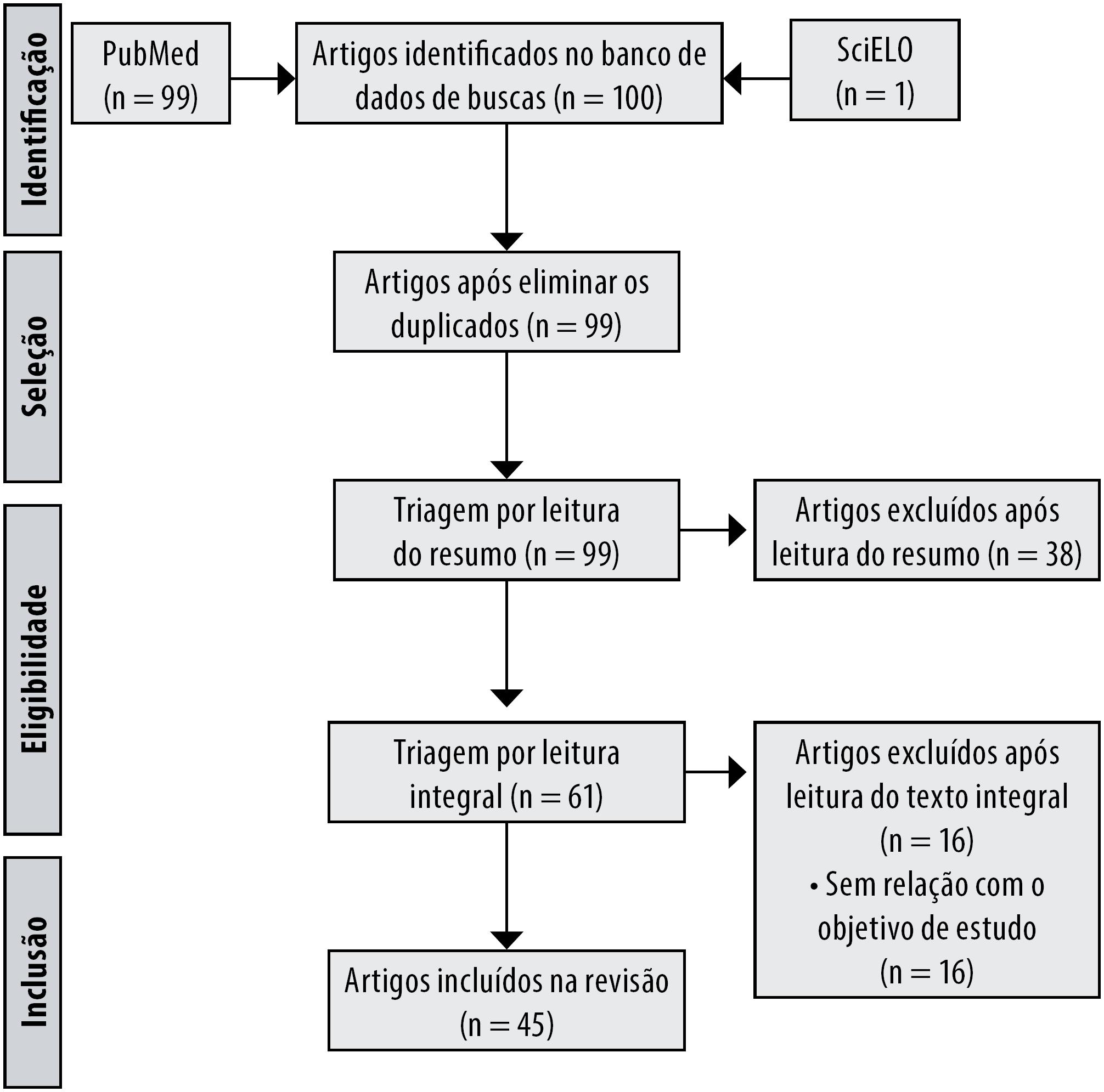ABSTRACT
Objective
Review the most recent literature about the association between hyponatremia and antidepressives’ intake.
Methods
Bibliographic search in PubMed and SciELO databases, with the MeSH terms “antidepressive agents” and “hyponatremia”, including articles between January 2006 and May 2016.
Results
A total of 45 articles have been included. Age, female sex and polymedication are the main risk factors and symptoms depend on hyponatremia severity. Hyponatremia may have several causes, being the most common the syndrome of inappropriate antidiuretic hormone secretion. Between the selective serotonin reuptake inhibitors, citalopram and escitalopram presented a bigger risk, similarly to venlafaxine. Risk of hyponatremia seems smaller with the other antidepressives’ classes, with exception to monoamine oxidase inhibitors. An ionogram previously to the treatment, for patients older than 60 years, and an ionogram, always, one month after the beginning of the treatment. The first step for the treatment is the discontinuance of the drug, reverting most of the mild cases. However, treatment must be individualized, considering hyponatremia's risks and correction's risks.
Conclusions
Hyponatremia is a side effect to consider in patients taking antidepressants. When maintaining the treatment is needed, the same antidepressive or other of the same class, must be avoided. Options are trazodone, bupropiom, agomelatine, mirtazapine and reboxetine, because there's only a few cases of hyponatremia with these drugs.
Keywords
Antidepressive agents; hyponatremia

